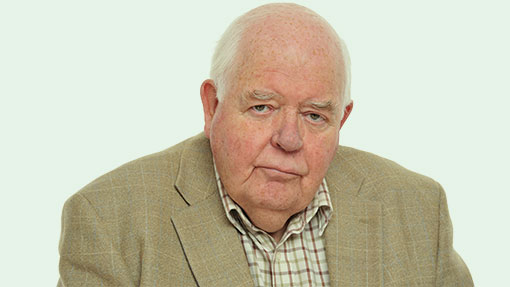Opinion: Free markets are too blunt an instrument for food

Sugar beet looks like being the crop of the year. Not just because yields/acre promise to be the best ever, but also because the ex-farm price is respectable, having been negotiated with British Sugar, the monopoly processor, more than a year ago.
This followed a period of grower dissatisfaction and rare unity in support of the NFU, which negotiates on growers’ behalf. Crucial also to reasonable returns for beet is the quota system that controls the area grown and, on the back of which, limited EU price support is granted.
Quotas are a long-established part of sugar beet growing that have stood it in good stead almost since the crop was introduced to Britain more than 100 years ago. But because of the holy grail of free world markets and the perceived wisdom that commodity production should no longer be subsidised, even when, as the beet regime does, it also provides guarantees to cane producers in developing countries, quotas are to be abolished in a couple of years.
The inappropriateness of this may be judged by the fact that, following this year’s big crop across the EU and in Brazil, British Sugar and the NFU have agreed that quotas for 2015 should be reduced by 20% to try to control oversupply and maintain values as far as possible.
Even so, the price British Sugar will pay for beet next year will be reduced from £31.67/t to £24/t. But when quotas disappear, prices will be based on world markets and production adjustment will no longer be possible. Then it will be a free-for-all and the devil takes the hindmost. Think sugar; think milk.
Such policies are driven by economists who argue that competition promotes efficiency and I cannot deny an element of truth in that. But when it is based on world supply and demand, it takes no account of the lack of a level playing field. And as we have seen with other sectors, it often ends up exporting production to other countries with low costs, to the detriment of farmers in those nations that impose the free trade rules. Furthermore, it is one of the main reasons why Britain’s self-sufficiency for food has declined so significantly over recent years.
Economists would doubtless retort that I have omitted domestic consumers from my thoughts and that they should benefit most from cheaper production. Once again, that cannot be completely denied. But between producers and consumers there are retailers and it is my perception that much of the competitiveness that should hold down the cost of food adds to supermarket profits instead.
Meanwhile, competition between supermarkets themselves has turned into a fight to the death, or so it seems. Farmer suppliers will suffer and, with big retailers accounting for over 80% of all food, they’ll drive more corner shops out of business as well.
I have scant hope my views will change policies. But I’ve argued for years that free markets are too blunt an instrument for food. They only work through volatility. When production rises, prices fall; and when production falls, prices rise. That’s unsatisfactory for producers and consumers.
The world is facing bigger challenges as it seeks to feed an increasing population. Stability is vital to achieve this. Volatility cannot be the right answer. All shortage and glut do is to hand more power to big operators. But the world needs small operators, too.
Production planning and limited control should be reintroduced. It has worked before in crises and could do again.
David Richardson farms about 400ha of arable land near Norwich, Norfolk, in partnership with his wife Lorna and his son Rob.
What do you think about this subject? Have your say on our website forums.
